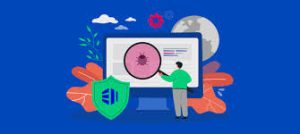some tips for protecting your computer from being hacked

- Keep your software up to date. This includes your operating system, web browser, and any other software you use.
- Use strong passwords and don’t reuse them.
- Be careful about what you click on. Don’t click on links or open attachments from people you don’t know.
- Don’t download software from untrusted sources.
- Use a firewall.
- Use antivirus software.
- Be careful about what you post online.
- Be aware of phishing scams.
If you think your computer has been hacked, you should take the following steps:
- Change your passwords.
- Scan your computer for malware.
- Run a system restore.
- Contact your internet service provider.
If you are concerned about your computer security, you can consult with a cybersecurity expert.
-
- Use antivirus software: Keep your antivirus software up to date and running, especially when you’re downloading files or checking your email. Antivirus software scans for viruses and deletes anything malicious.
- Use a firewall: A firewall acts as a barrier between your computer and the internet, stopping threats from entering your system.
- Keep your software up to date: Keep your operating system, applications, and antivirus software up to date.
- Use strong passwords: Choose a strong password and protect it.
- Be careful with links and attachments: Don’t open suspicious attachments or click unusual links in messages.
- Use antivirus software: Keep your antivirus software up to date and running, especially when you’re downloading files or checking your email. Antivirus software scans for viruses and deletes anything malicious.
- Be aware of phishing scams: Watch out for phishing scams and spyware.
- Back up your data: Back up your data regularly.
- Use a non-administrator account: Use a non-administrator account whenever possible.
- Limit file sharing: Limit how often you share files.
- Use a security device: If you’re using your laptop in public, use a security device and attach it to something immovable
